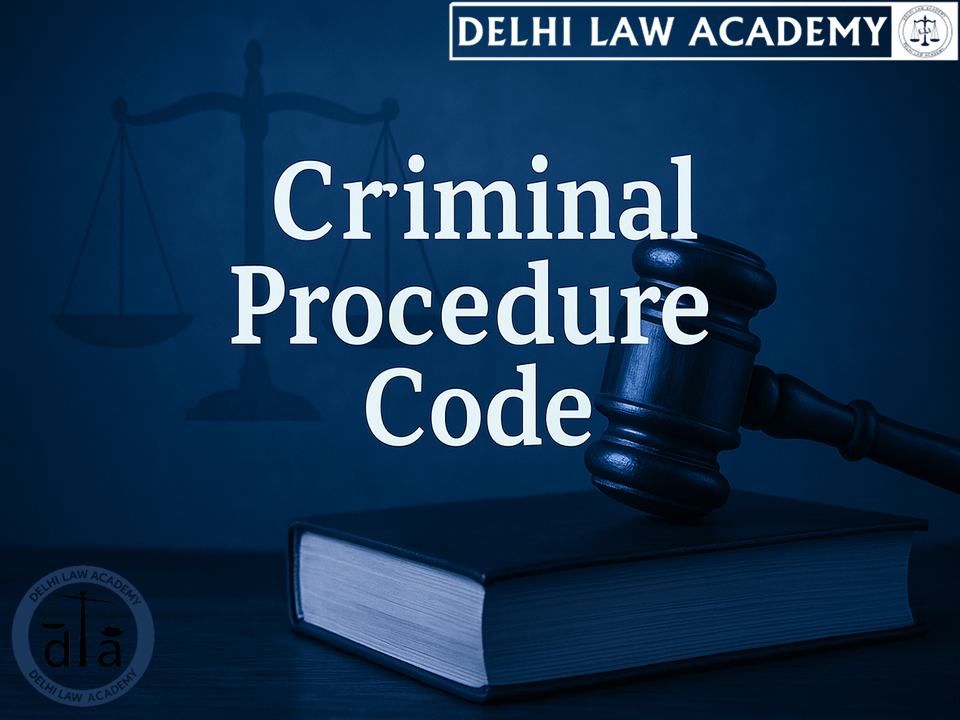
📚 BAIL POWERS OF HIGH COURT & COURT OF SESSIONS
Preparation for RJS, DJS, PCS (J) and other Judicial Service exams
Below is your original text preserved exactly as provided. Use this block for publishing — the exact wording, punctuation and formatting are intact.
BAIL POWERS OF HIGH COURT and COURT OF SESSIONS Preparation for RJS, DJS, PCS (J) and other Judicial Service exams CRIMINAL PROCEDURE CODE EXPLAINED The Criminal Procedure Code forms the bedrock of any and every Judicial Service exam in the country. Its thorough knowledge is a must for all aspirants of RJS, DJS, PCS (J) and every other Judicial Service exam. To help such aspirants, DELHI LAW ACADEMY JAIPUR has launched a series of study material modules on all important aspects of this vital part of their syllabus: *************** • Unlike u/s 437(1) there is no ban imposed u/s 439(1) against granting of bail to persons accused of an offence punishable with death or imprisonment for life. • But at the same time the Sessions Judge or the High Court will not be oblivious of considerations of likelihood of the accused being guilty of an offence punishable with death or imprisonment for life. **************** Section 439(1) Bail powers of High Court, Court of Sessions • A High Court or Court of Session – may direct that any person accused of an offence and in custody – be released on bail • If offence is of nature specified in Section 437(3) • Court may impose – any condition which it considers necessary for purposes mentioned there • A High Court or Court of Session • may direct – that any condition imposed by a Magistrate when releasing any person on bail – be set aside or modified Proviso • Before granting bail – to a person who is accused of an offence – which is triable exclusively by the Court of Session or – which, though not so triable, is punishable with imprisonment for life • the High Court or Court of Session – shall give notice of application for bail to the Public Prosecutor • unless – it is, for reasons to be recorded in writing, not practicable to give such notice Proviso 2 Inserted by the Criminal Law (Amendment) Act 2018 • High Court or Court of Session shall – before granting bail to a person – who is accused of an offence triable u/s 376(3), 376AB, 376DA or 376DB IPC • give notice of application for bail – to the Public Prosecutor – within 15 days from receipt of such application Analysis • Section 439(1) confers special powers on the High Court or the Court of Session in respect of bail. • Unlike u/s 437(1) there is no ban imposed u/s 439(1) against granting of bail to persons accused of an offence punishable with death or imprisonment for life • It is difficult to reach a conclusion that the Sessions Judge or the High Court need not even bear in mind the guidelines which the Magistrate has necessarily to follow in considering bail of an accused. • It is not possible to hold that the Sessions Judge or the High Court, certainly enjoying wide powers, will be oblivious of considerations of likelihood of the accused being guilty of an offence punishable with death or imprisonment for life. • Since the Sessions Judge or the High Court will be approached by an accused only after refusal of bail by the Magistrate, it is not possible to hold that the mandate of the law of bail under Section 437 Cr.P.C for the Magistrate will be ignored by the High Court or Sessions Judge. Section 439(1A) Inserted by the Criminal Law (Amendment) Act 2018 • Presence of – the informant or any person authorised by him • shall be obligatory – at the time of hearing of bail application – u/s 376(3), 376AB, 376DA or 376DB IPC Section 439(2) • High Court or Court of Session • may direct – that any person who has been released on bail under this Chapter be arrested and • may commit him to custody • Under Section 439(2) of the new Code, a High Court may commit a person released on bail under Chapter XXXIII by any Court including the Court of Session to custody, if it thinks appropriate to do so. It must, however, be made clear that a Court of Session cannot cancel a bail which has already been granted by the High Court unless new circumstances arise during the progress of the trial after an accused person has been admitted to bail by the High Court. • If, however, a Court of Session had admitted an accused person to bail, the State has two options. It may move the Sessions Judge if certain new circumstances have arisen which were not earlier known to the State and necessarily, therefore, to that Court. The State may as well approach the High Court being the superior court under Section 439(2) to commit the accused to custody. When, however, the State is aggrieved by the order of the Sessions Judge granting bail and there are no new circumstances that have cropped up except those already existed, it is futile for the State to move the Sessions Judge again and it is competent in law to move the High Court for cancellation of the bail. This position follows from the subordinate position of the Court of Session vis-a-vis the High Court. *********************
💬 FAQs — Bail Powers of High Court & Court of Sessions
Common long-tail search questions answered for Section 439 CrPC, bail procedure, and practice — ideal for RJS / DJS / PCS(J) aspirants.
- HC/Sessions enjoy wide discretion under Section 439 but must balance liberty & public interest.
- Notice to Public Prosecutor is generally required for serious offences; record reasons if impracticable.
- High Court can commit a person released on bail back to custody under new circumstances (439(2)).
(Search phrase: “practical points bail powers High Court Sessions Court for judiciary exam“)
📚 For comprehensive notes and case law on Sections 437 & 439 CrPC, visit Delhi Law Academy
📘 Free Study Material for Judiciary Aspirants!
Download our FREE study material prepared by Delhi Law Academy’s expert faculty.
Contact us
📍 Delhi Law Academy – Jaipur Branch
6C, Tower 2, Coaching Hub, Pratap Nagar, Jaipur – 302033
📞 Phone:
+91 9911916552
+91 8447285606
✉️ Email:
contactus@delhilawacademy.com

